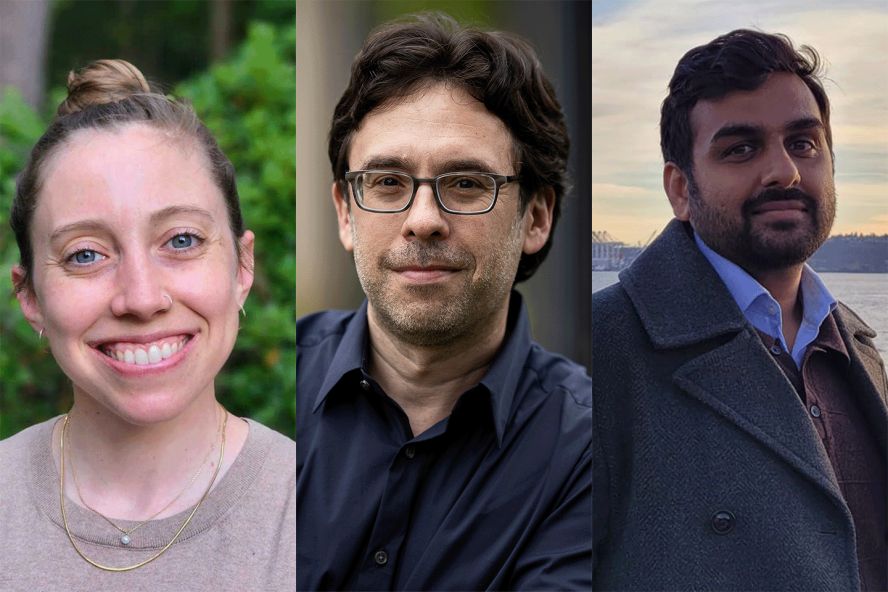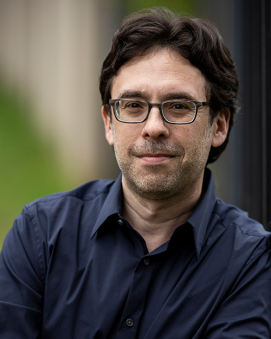Faculty Focus: Fall 2024

An Ally for the Vulnerable
After studying anthropology and French in college, Alexandra Collins relocated to Vancouver, Canada, to pursue a graduate degree in medical anthropology at Simon Fraser University. There, her research initially centered on the challenges of people living with HIV who use drugs. After she entered the PhD program, her focus shifted to those who use drugs regardless of co-occurring illnesses.
"This is a highly stigmatized group of people who face many barriers along with many inequities in how they're treated in clinical settings or even in access to basic needs like housing," Collins says. "I wanted to learn how we could better address inequities that people who use drugs face."
As a medical social scientist, Collins draws from fields like medical anthropology, sociology, and human geography in her work. Most recently, as an assistant professor at the Brown University School of Public Health's Department of Epidemiology, she mainly conducted research. She says that joining Tufts will allow her to strike a better balance between research, teaching, and mentorship.
At Tufts, Collins will have the opportunity to expand the Department of Community Health's focus on substance use. This fall, she'll teach "Drugs, Society, and Public Health," which will examine the complexity of substance use and how the United States has tried to manage the problem. It will be a welcome change from Brown, where she almost exclusively taught graduate students.
"I'm a first-generation college graduate, and undergrad was such a pivotal period in my life," she says. "I'm excited to be in that environment and to be able to work with students as they figure out what interests and motivates them."
Collins also plans to be involved in the local community. She previously consulted the cities of Somerville and Cambridge on drug policy and volunteered at a syringe exchange in Boston. "I want to meet more community members and organizations in the area and find ways to collaborate in supporting people who use drugs," she says.
From Concert Halls to the Classroom
Between 2006 and June 2024, Jeremy Eichler built up a loyal readership as chief classical music critic for The Boston Globe. His 2023 book, Time's Echo, has received widespread critical acclaim for its reflections on how music carries forward the memory of the wartime past.
Now Eichler is taking his considerable talents to Tufts, where he'll teach "Writing About Music" as well as other courses at the intersection of music, history, and the public humanities.
"I'm thrilled to be bringing my experience into the classroom to help students move forward in their own journeys with words and music," he says. "I hope that my background as both a historian and practicing music critic will help my classes connect with a wide swath of Tufts students."
Eichler, who plays violin and viola, first fell in love with classical music as a high school student. "For me at that age, the great symphonic repertory came across not as staid masterworks but as these primal eruptions of sound, emotion, and meaning," he says.
He began writing about music after college and coincidentally landed a job as a contributing music critic for The New York Times just as he was beginning his doctoral study in modern European history at Columbia University. It turned out that being immersed in both endeavors at the same time was transformative.
"I came to realize we can learn to hear history through its music — and music through its history," he says. "In a way, when we encounter certain music of the past, we're actually listening to culture's memory."
Eichler is eager to share all he has learned with Tufts students. "Working as a classical music critic in a city like Boston was a dream job and an enormous privilege," he says. "I'm now looking forward immensely to working with the next generation of writers, thinkers, and listeners — anyone who might be searching for new on-ramps toward a meaningful relationship with this extraordinary art form."
A Convert to Sociology
When Sonal Sharma was growing up in New Delhi, India, his mother cleaned homes and his father collected payments for a hardware store. It was a working-class existence. Studying economics at the University of Delhi, where he was surrounded by more-affluent classmates, heightened his awareness of the inequalities in Indian society.
"Being self-conscious about my class origin and my parents' occupations made me reconsider what I wanted to do in life," he says. "I started to ask, what could I do to change society for the better? I found that my study of economics was not suitable for answering questions like that."
Sharma went on to earn a master's degree in development studies, an interdisciplinary program that touched on political science, philosophy, and sociology. His initial interest in sociology was highly personal. As someone trying to make sense of his queerness, he was interested in issues of gender and sexuality as well as corresponding political and social movements.
In 2016, Sharma left India to pursue a PhD in sociology at Johns Hopkins University in Baltimore. He eventually completed a dissertation whose topic was highly personal as well: the divergent outcomes of domestic workers' advocacy for labor rights in India (which have been largely unsuccessful) and South Africa (which have largely succeeded).
Last year, Sharma saw a job posting at Tufts looking for a scholar with expertise on social movements and inequalities in the Global South. He couldn't have been a better fit. This fall, he'll teach a revised version of the course that he designed and taught at Johns Hopkins called "Race, Caste, and Capitalism."
"There is some debate among scholars about the similarity of race and caste," Sharma says. "By the end of this course, students should develop their own opinions about that topic while also understanding what race and caste are, how they have evolved, and how the capitalistic system interacts with these two social categories."


